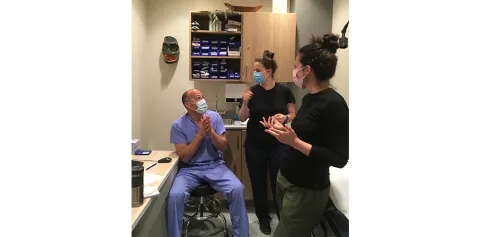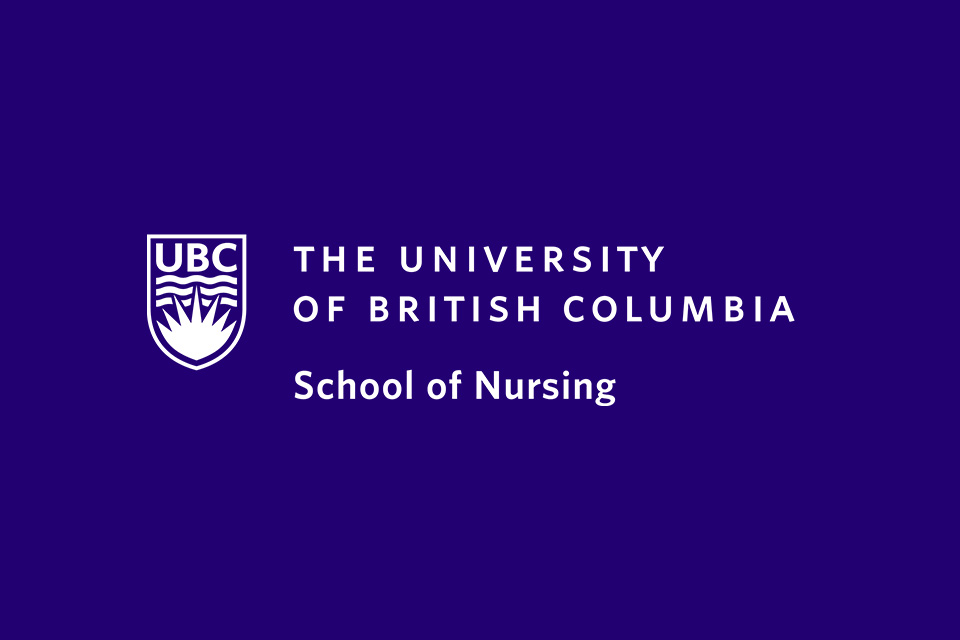
May 1, 2020
Nurses are committed to serving all, and to applying a health equity lens in the process of providing care. What does that mean in a pandemic? It means that nurses are obliged to identify those who are the least likely to be well-served by systems currently in place, and to fill any gaps by whatever means are necessary.
For example, we are all familiar with the directive to “stay home,” but nurses are among the first to recognize that many people do not have safe, adequate housing, or they are unable to afford or access any housing or shelter. For them, staying home may not be feasible or possible.
In addition, everyone is encouraged to exercise utmost caution when grocery shopping. For those who do not have housing, access to cooking facilities or money for groceries, the problem is more dire: where to get food at all. This situation is exacerbated by the recent changes in eligibility to and closures of food banks, and other sources of meals.
Staff members and research assistants from the UBC School of Nursing Critical Research in Health and Healthcare Inequities (NCRHHI) unit are collaborating with staff at an Indigenous-focused, Elder-led, health centre in the Downtown Eastside called Kílala Lelum. The clinic has been a partner with the UBC School of Nursing since its inception, offering clinical placements to students and research opportunities to both faculty and students. The partnership helps to maintain and strengthen services for members of the health centre, many of whom face significant barriers to health and wellbeing, including economic hardship, trauma, and violence, including gender-based violence, racism and other forms of discrimination.
Recently, Dr. Colleen Varcoe, who is a founding board member of Kílala Lelum, and Dr. Annette Browne, a current board member, took direction from clinic staff to put out a call to research assistants and staff for volunteers to address needs arising from or amplified by the COVID pandemic. The response was immediate. Volunteers include nursing students, other health science students, and registered nurses who are already knowledgeable about providing equity-oriented care (https://equiphealthcare.ca/), including trauma and violence-informed care and harm reduction approaches. They also have training in Indigenous cultural safety and are experienced in working in busy health care settings that serve a wide range of people.
At the clinic, volunteers are working under the direction of clinic staff to help with shifting food and medication programs to be sustainable under social distancing and to do phone check-ins with over 1000 members who access health care through the clinic. Many volunteers are already skilled in offering safe phone support in a research context, and research safety protocols and tracking mechanisms are being repurposed to support people and facilitate access to needed care.
One such volunteer, Jesse Howardson, has just completed her BSN degree with a background in ethnobotany, place-based conservation, and food systems revitalization. Such a background will serve her well as a new grad seeking to work in a rural nursing position on northern Vancouver Island, but in the meantime, it supports her in fulfilling duties as a volunteer. For Jesse, being able to use her skill set with flexibility and responsiveness to the needs of the existing workforce has been an invaluable experience. “Folks at Kilala Lelum were so welcoming during my shifts volunteering, and gave us volunteers a good sense of what was helpful to support members and staff in these times.”
This initiative successfully brings skills, training, and compassion immediately to where they are needed without encumbrance. Dr. Browne trusts that this program will form the template for whatever needs may arise. “We have over 20 research assistants who have expressed interest in volunteering their time to support the health care workers at Kílala Lelum to provide care to members. At the same time, we are trying to avoid adding any burden to the staff as they adjust their priorities on a daily basis,” said Dr. Browne. “We are only responding to what clinic staff identify as needed, and we are doing as much coordinating, training and debriefing as possible”. As the world braces for whatever emergencies develop, nurses remain ever ready to rise to the occasion.



